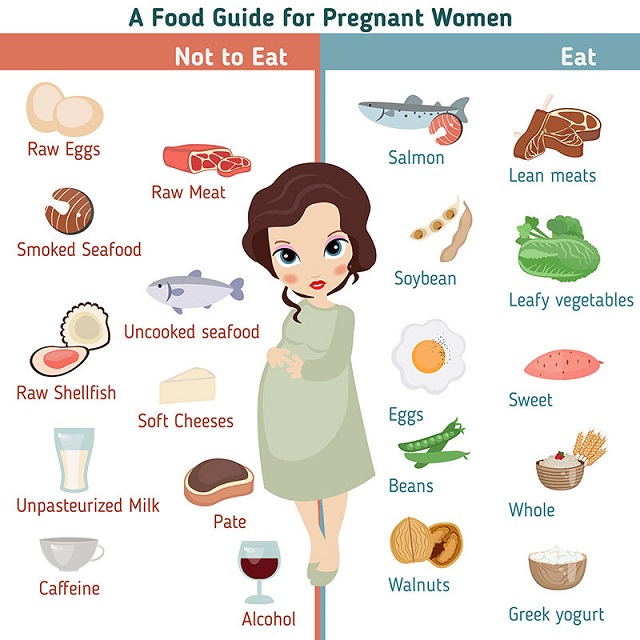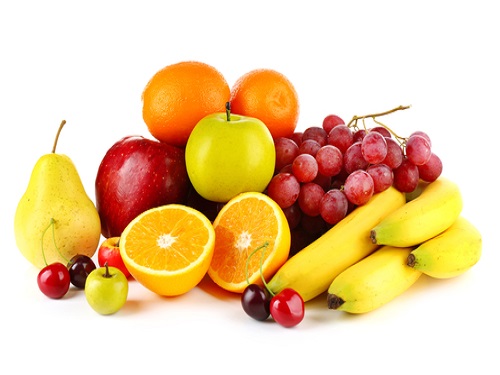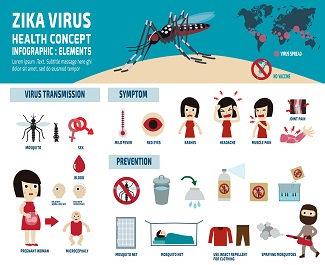Key nutrition during pregnancy
According to the American College of Obstetricians and Gynecologists, a woman will need more calcium, folic acid, iron and protein during pregnancy to support the healthy development of the growing baby.
Calcium
Developing baby needs calcium to build healthy bones and teeth. Calcium also helps a baby grow a healthy heart. Vitamin D will also be required as it aids the absorption of calcium from the stomach.
Food that is rich in calcium included salmon, broccoli, kale, and yogurt.
Iron
Iron is essential to make hemoglobin in the red blood cell. During pregnancy, the amount of blood in your body increases by about 50% to meet the needs of the healthy development of the growing baby. You will, therefore, need extra iron to make more hemoglobin.
Getting too little iron during pregnancy can lead to anemia, a common problem during pregnancy which can result in fatigue and an increased risk of infections.
Iron is also essential for a healthy immune system.
Red meat is rich in iron.
Folic acid
Folic acid is also known as folate. It is a B vitamin that is crucial in helping to prevent birth defects in the baby's brain and spine which is also known as neural tube defects.
Most gynecologists recommend that pregnant women take a daily vitamin supplement containing 600 micrograms of folic acid, an amount commonly found in a regular prenatal vitamin.
Food that is rich in folic acid includes leafy green vegetables, fortified or enriched cereals, bread, and pasta.
Protein
More protein is needed during pregnancy. Protein is the building blocks of our body’s cell. It is especially important to have enough protein in second and third trimester as the baby is growing faster during these periods.
Food that is rich in protein includes meat, poultry, fish, dried beans and peas, eggs, nuts, tofu.
What food should you eat during pregnancy?
Fruits and vegetables
Fruits and vegetables are nutrient-dense and are filled with fiber, vitamins, and minerals that you and your baby need. Eating fruits and vegetables also help prevent constipation, a common symptom during pregnancy.
Fruits that are beneficial included: avocado, lemon, banana, apples, and berries.
Vegetables like sweet potato, broccoli, beans and other green, leafy vegetables are all beneficial to the pregnant women.
Lean protein
Pregnant women should include good protein sources at every meal to support the baby's growth. Source of the lean protein includes meat, poultry, fish, hard-boiled eggs, beans, tofu, cheese, and nuts.
Whole grains
Whole grains are a vital source of energy in the diet, and they also provide fiber, iron, and B-vitamins.
What food should you avoid during pregnancy?
Raw fish
Do not eat any undercooked or raw fish as they may contain parasites or bacteria.
Fish that has a high level of mercury
Pregnant women should avoid fishes that contain a high level of mercury such as king mackerel, marlin, shark, swordfish, tilefish, and tuna. Mercury consumed during pregnancy has been linked to developmental delays and brain damage in the baby.
Shellfish
It is best to avoid raw shellfish during pregnancy. Fresh shellfish like clam, scallop, and oyster contain Vibrio bacteria.
Smoked seafood
Refrigerated and smoked seafood should be avoided because it could be contaminated with listeria.
Undercooked or raw meat
Raw or undercooked beef or poultry should be avoided during pregnancy because of the risk of contamination with coliform bacteria, toxoplasmosis, and salmonella.
Soft cheese
Soft cheese made from unpasteurized milk may contain the virus E.coli or Listeria.
Unpasteurized milk
Pregnant women should avoid unpasteurized milk as it contains bacteria such as Campylobacter, E. coli, Listeria, or Salmonella.
Pregnant women should be drinking pasteurized milk.
Raw egg
Pregnant women should avoid unpasteurized or undercooked eggs as they may contain Salmonella.
Caffeine
Coffee, tea, chocolate and some soft drinks have a high level of caffeine. Pregnant women should limit their consumption to one or two cups in a day.
According to one study published by the National Institute of Health, high maternal caffeine intake during pregnancy is associated with the risk of low birth weight in babies.
Alcohol
Pregnant women should stay away from alcohol as it increases the risk of miscarriage and stillbirth. Many studies have confirmed that even a small amount can negatively impact the brain development of your baby.
It can also cause fetal alcohol syndrome. This syndrome involves facial deformities, heart defects, and mental retardation.
Have concern about what to eat and what to avoid, check Can I Eat During Pregnancy?
Subscribe to receive newsletter on pregnancy and parenting in Singapore.


